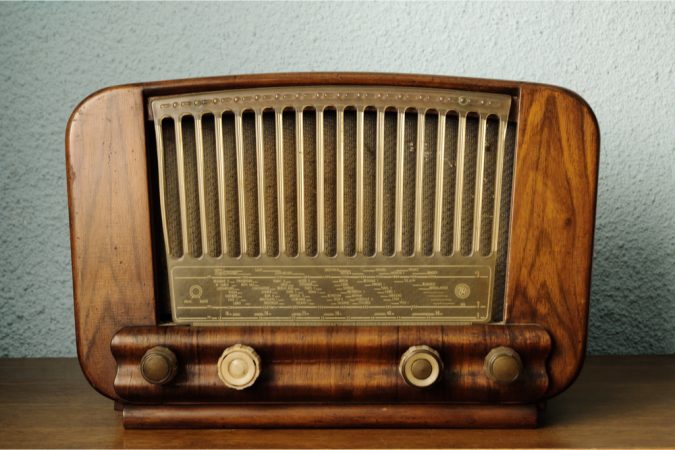
When I interviewed Dr. Jamin Wells for “Healing Pensacola†(Inweekly, 7/29/21), he mentioned that T.T. Wentworth Jr. had done over 160 weekly broadcasts on history for WCOA during the 1930s. I set up an appointment with the UWF Historic Trust archives to read the scripts.
I reviewed 10 volumes. The show was broadcast at WCOA, a Pensacola Journal station, from the San Carlos Hotel, the site of the present federal courthouse at corner of Garden and Palafox streets. Each show lasted 15 minutes.
The inaugural show was at 6:45 p.m. on Wednesday, Oct. 28, 1936. Announcer Fred King introduced Wentworth as “Pensacola Historical Society founder and national known historian.†The topic was “Conquest of Florida by Hernando DeSoto.â€
Wentworth was a colorful storyteller, based on the scripts – “DeSoto started without any funds and his estate consisted of only a sword and buckler.â€Â His tales were pulled from books, journals and diaries that he collected. At the end of the show, he would thank people for giving him and the Historical Society documents and letters their families had.
The volumes also contained newspaper clippings.
In February 1937, Wentworth kept his listeners in suspense with his two-part story of the Doodle-Bug, a tug with two barges filled with Confederate soldiers that was under heavy from the Union guns at Fort Pickens. The station was flooded with phone calls: “What happened to those boats? Were they sunk? Or did they come through the battle all right?†(Pensacola Journal, “Wentworth Leaves Audience in Suspense But Not for Long,†2/12/1937).
Missing from the broadcasts were any reports of John Sunday and any Black citizens that held public office after the Civil War, such as Pensacola Mayor Salvador Pons and State Representatives Zebulon Elijah and Charlie Rouse (Inweekly, “Black Citizenship in Action,” 8/8/2019).
Wentworth did dedicate to former Pensacola Mayor W.D. Chipley, who he said was “acquitted and vindicated” of murder charges in Georgia before moving to Northwest Florida.
Last summer, I did extensive research into Chipley’s trial.
In March 1868, angry mob of Klansmen brutally murdered Federal Judge George Ashburn in Columbus, Georgia. When local authorities refused to investigate, Union Gen. George Meade declared martial law. Eighteen men were arrested. Chipley was charged with murder along with Dr. Elisha Kirkscey, Robert Hudson, Columbus Bedell, James Barber, William Duke, Robert Wood and James Wiggins.
The murder and arrests drew national attention. The trial lasted 20 days and eventually was halted when Georgia agreed to ratify the 14th Amendment, which granted citizenship to former slaves in exchange for Meade’s termination of the trial.
The Atlanta Constitution and New Orleans’ Times-Picayune later wrote the Columbus prisoners had been acquitted.
The “Biographical Notes, Memoirs of Florida, Volume 1,†which was published after his death in 1902, says Chipley was found not guilty by a jury of his peers, even though military courts don’t have civilian juries. The biography claims his widow had a letter that Chipley’s attorney wrote to his client, “in which the government apologized to Chipley and offered him freedom because the prosecution had no evidence. Chipley turned down the offer and instead waited for vindication at the trial.â€
A biography on an Ohio State University website misspells Chipley’s name as Copley in several places but seems to have picked up the same myth—“The federal goverment (sic) admitted that the prosecution lacked evidence and apologized to Chipley.â€
I found no newspaper clipping of the trial coverage that stated a jury acquitted Chipley. Meade’s official report didn’t state a verdict had been reached. Ashburn is considered the first murder victim of the Klan in Georgia. (Inweekly, “Chipley: The Man Behind the Monument,” 6/18/2020).
Read more about T.T. Wentworth, Jr. Â here.



